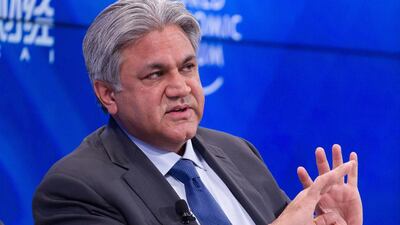Dubai-based private equity investor Abraaj Group, which has about $13.6 billion of assets under management, dismissed as “inaccurate and misleading” media reports that said it misused funds earmarked for healthcare projects in the developing world.
The Wall Street Journal and The New York Times claimed that some of the 24 investors in the Abraaj Growth Markets Health Fund (AGHF), including large development donors, have hired forensic accountants to investigate what had happened to some of the money invested in the fund.
“Given the lack of mature healthcare assets in growth markets and the need to develop greenfield as well as brownfield projects, capital deployment is less predictable than that of a standard private equity fund,” said Abraaj in a statement on Sunday.
“Some capital was not used as quickly as anticipated due to unforeseen political and regulatory developments in several of the Fund’s operating markets. These delays were regularly communicated to investors through quarterly General Partner Reports and other investor communications.”
Such delays relate to the building of hospitals in Pakistan and Nigeria, according to the Times.
Concerned investors include the Bill & Melinda Gates Foundation, the World Bank's International Finance Corporation (IFC), Britain's CDC Group and Proparco Group of France, the Journal reported, citing sources familiar with the matter.
_______________
Read more:
Abraaj bullish on Saudi Arabia, eyes future acquisitions, CEO says
Dubai's Abraaj to invest in wind energy in India with France's Engie
_______________
Private equity groups such as Abraaj, IFC and CDC – part of the UK’s Department for International Development – play an increasingly large role in international development, investing in projects in developing market projects that boost local economies while providing attractive returns for investors.
The Times claimed the missing funds amounted to over $200 million, and that investors feared that Abraaj had misused the money for its own purposes, citing people briefed on the matter.
Abraaj said that the terms of the limited partnership agreement allow the fund to retain called capital “in situations where an investment is delayed but still approved and not cancelled.”
The group returned the unused capital in December, following discussions with investors, it said.
Abraaj has engaged auditing firm KPMG to verify “all receipts and payments made by the Fund in accordance with the International Standard on Related Services applicable to agreed-upon procedures engagements”.
“We are confident that the exercise being conducted by KPMG will confirm that all the funds were accounted for and used appropriately.”
Abraaj founder Arif Naqvi told The National in October the group is especially bullish about investment prospects in Saudi Arabia, the Arab world's largest economy, as the country looks to encourage foreign investments as part of widespread economic reforms.
“We have been bullish about the kingdom for a very long time,” said Mr Naqvi.
“If you ask me if we are looking at stuff in the kingdom, we are always looking at stuff in the kingdom… we have over the past decade invested close to $1bn in various businesses in this country.”
In December Abraaj acquired a minority stake in Biletal İç ve Dış Ticaret A.Ş (Biletall), an online travel agent in Turkey, the third investment made through the Anatolia Growth Capital Fund, for an undisclosed sum.
Also in December the group acquired a stake in Tunisie Telecom from the telecoms investment unit of Dubai Holding, representing the largest ever private equity investment in the North African country.

